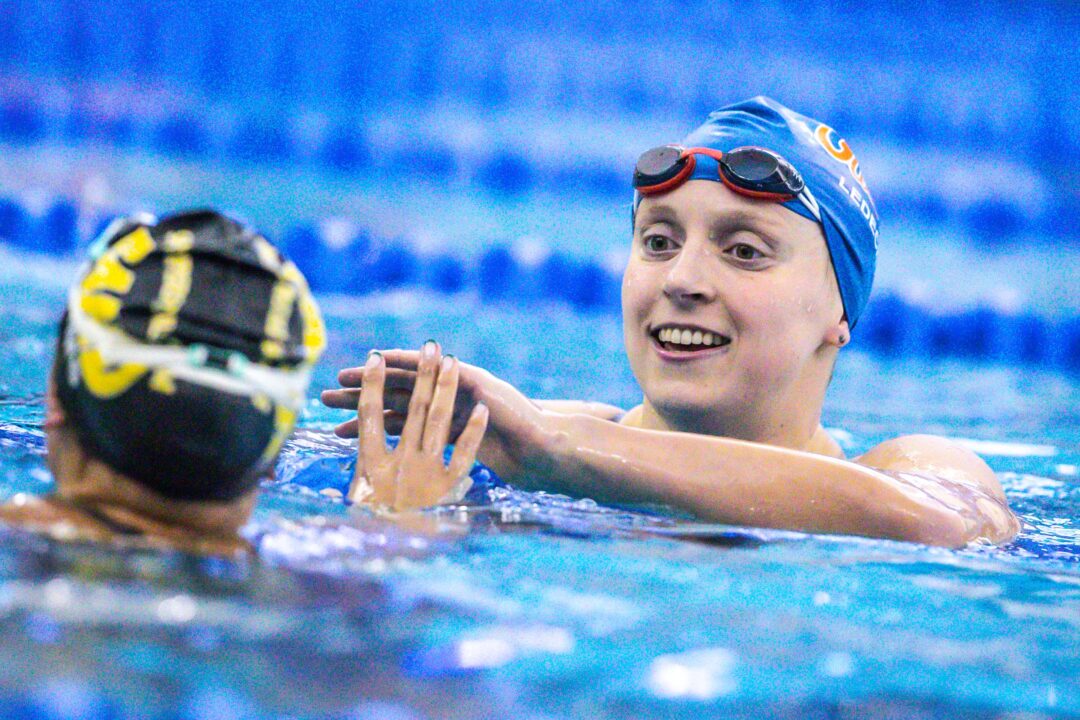SwimSwam Pulse is a recurring feature tracking and analyzing the results of our periodic A3 Performance Polls. You can cast your vote in our newest poll on the SwimSwam homepage, about halfway down the page on the right side.
Our most recent poll asked SwimSwam readers how they felt about the possibility of seeing data while watching live events:
Question: Would you like to see live biometric data during races?
RESULTS
- I’m a swim geek – I love this – 42.3%
- I’m an elite swimmer – I love this – 32.9%
- I’m a swim geek – I hate this – 11.4%
- I’m an elite swimmer – I hate this – 7.0%
- I’m a casual fan – I love this – 4.0%
- I’m a casual fan – I hate this – 2.4%
With certain sports beginning to experiment with displaying live biometric data of athletes during events, the question of how this could potentially play into swimming is an intriguing one.
As Braden Keith pointed out here, live data could make the longer events in swimming a lot more interesting, with the possibility of comparing athlete heart rates in a 400 or 1500-meter race and predicting who might fade and who might make a charge given the numbers.
An underrated time to analyze swimmer heart rates could come pre-race—during the walkouts, in the seconds leading up to the athlete’s getting whistled onto the blocks. We would get a peak behind the curtain and see which swimmers are the most nervous or anxious, in theory, based on who has the highest heart rate.
During the 2021 Ryder Cup, certain golfers had their heart rates displayed and you could see them spike while they were on the first tee in front of massive crowds.
In races themselves, heart rate and perhaps other metrics (such as oxygen saturation) could certainly be interesting and add a new element to races, though in addition to potential inaccuracies in the data, athletes having entirely different baselines would leave viewers with no real context to what the numbers are indicating.
Certain broadcasts have leaned into things such as displaying a swimmer’s speed in recent years, which at times can make things a bit too busy and distracting, especially when the data is virtually the same for every athlete.
While there are certainly pros and cons to the idea, over 79 percent of readers voted in favor and adding biometric data to live broadcasts.
- 82.5 percent of those that identified as elite swimmers were in favor of biometric data.
- 78.7 percent of those that identified as swim geeks were in favor of biometric data.
- 62.5 percent of those that identified as casual fans were in favor of biometric data.
If the numbers are relevant to the race and can offer insight into performance while doing so in a clean and non-confusing manner, adding live data is certainly something worth exploring.
Below, vote in our new A3 Performance Poll, which asks: Who should be favored in the men’s 1500 free this summer?
ABOUT A3 PERFORMANCE
The A3 Performance Poll is courtesy of A3 Performance, a SwimSwam partner.


I’d be concerned that it becomes even more vulnerable for the athlete to have spectators knowing their stats and emotions – it could be cool but could lead to more scrutiny.
Yeah interesting take. Realistically, we can only speculate how hard someone is trying (for example..and might be a bad one). If we could compare heart rate to previous swims at the same distance, then real conclusions could be made. It might be a little invasive.
I don’t really see the point of it but if it doesn’t interfere with the swimmers then I don’t really care.
More interesting is the upcoming poll. Surprised that Wellbrock is the favourite for 2 thirds of the votes. I’m not surprised he has the most votes but I am surprised how much of a landslide it is considering what Greg did last year.
Yesterday the 1500 poll basically had an 25/25/25/25 split across 4 swimmers which I found amusing
I think most people – me included – don’t really think it’s likely that Greg will repeat his Budapest performance. Finke’s last 50 is the fastest, but he doesn’t really have the same speed in the first 1400 as Greg, and Wellbrock seems to have both.
I think it would be really cool to see biometric data in real time, but part of me wonders if the extra weight of a cumbersome EKG machine strapped to the swimmers backs might slow them down a little bit. I guess we won’t know for sure until we give it a try. I sure hope it all works out.
I must be one of the few troglodytes around who find this kind of ‘data mining’ too intrusive to regularly include in a video broadcast. OK, even if the swimmers reluctantly agree, the “value added” to my mind is fairly minimal, esp. for races of less than 400 meters. Obviously, I enjoy watching how swimmers navigate stroke rate, pacing, negative splits, etc., in longer races – that’s plenty of action and info for me.